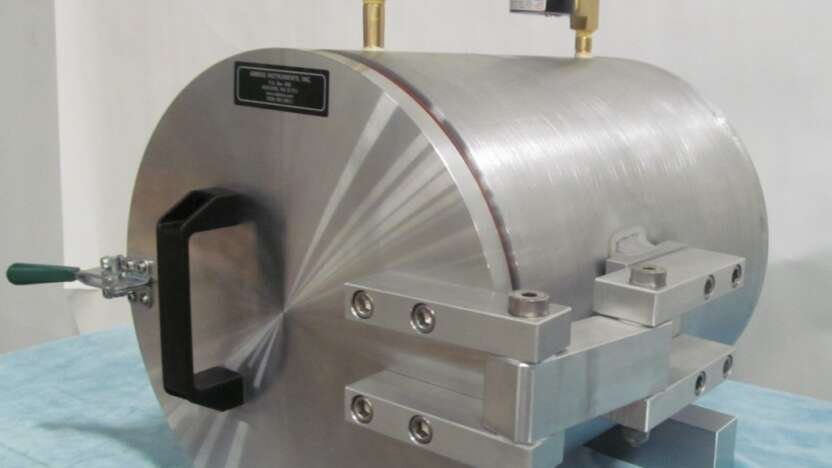Introduction:
In science and engineering, accuracy is key. If you are testing resources, simulating space, or creating semiconductors, your vacuum chamber plays a great role in your work. Selecting the exact vacuum chamber manufacturer is not only about finding the cheapest choice—it’s about getting good quality, reliable performance, and helpful support. That’s why selecting a trustworthy manufacturer is so essential. We’ll clarify in this guide the main things to search for, such as technical structures, customization choices, and after-sales support, so you can choose a vacuum chamber that fits your work and your budget.
Understanding Your Requirements
Before speaking to a manufacturer, you want to identify exactly what you want. Consider these questions:
What will you use it for? Are you testing supplies, creating thin films, simulating space, or doing semiconductor work? Diverse users want different kinds of vacuum designs.
Chamber Size: How large does the chamber want to be? Size disturbs setup, maintenance, and installation.
Vacuum Level: Do you want a low, high, or ultra-high vacuum? Each type wants different materials and equipment.
Connections: Will it link to sensors, control systems, or other tools?
Usage: How frequently and for how long will it run?
Knowing this helps you choose the right manufacturer without complications.
Checking Manufacturer Experience
Experience is essential when choosing a vacuum chamber manufacturer. A company with practice recognizes how to make good chambers and can avoid complications. See how long they have been in business because more years typically means more trustworthiness. Check what industries they work in, like aerospace, semiconductors or lab research, and select one that matches your desires. Expert manufacturers not only create good chambers but also give helpful information on design, materials and maintenance by which your work runs easily and safely.
Quality and Compliance Standards
When selecting a vacuum chamber manufacturer then it’s essential to check quality and security. The materials they use, like stainless steel, aluminum, or distinct alloys, determine how strong and effective the chamber is. Welding and seals must be tight and leak-free to have the vacuum working correctly. Look for certifications like ISO 9001 or AS9100, which display the manufacturer following quality instructions. Also, make sure they do tests like leak checks and pressure tests prior to delivery.
Customization and Flexibility
Each research project is different so it’s essential to have a vacuum chamber that can be personalized. Good manufacturers allow you to adjust the design to fit your exact wants. Chamber Design can be cylindrical, rectangular, or modular, depending on your workspace and experiments. Ports and Feedthroughs provide a stress-free entrance for sensors, instruments, and samples, making your work easier and more correct. Control Systems can be connected to automate vacuum controllers and monitoring tools, enabling you to run experiments well and carefully.
Support and Maintenance Services
A vacuum chamber is a great investment, so good support after purchasing it is essential.
Technical Support: Fast help from engineers for troubleshooting, setup, or guidance ensures your work runs smoothly.
Maintenance Services: Some manufacturers offer regular check-ups, cleaning, or on-site servicing to stop complications and have the chamber working well.
Spare Parts Availability: Easy access to parts like seals, gaskets, pumps, or sensors assists in avoiding delays in your work.
Training and Guides: Manuals and training support your team in using the chamber securely and properly.
Good support from the manufacturer makes your investment more valuable.
Cost Considerations
Price is key when selecting a vacuum chamber, but it shouldn’t be the only feature. Very low-priced chambers may use low-quality supplies or have poor support, which can cause more costs later for repairs or maintenance. Consider the full price, with installation, regular care, spare parts, and possible downtime. A good warranty displays that the manufacturer trusts their product and offers peace of mind. Don’t just center on the initial price—look at value by seeing long-term reliability, performance, and support.
Reputation and Reviews
Customer Feedback: What other engineers say displays how well the product works.
Industry References: Working with universities or companies displays that they are reliable.
Awards & Certifications: Certificates display that they meet quality standards.
Online Presence: A clear website and samples show trustworthiness.
Reliability: A good manufacturer delivers on time and offers strong support.
Conclusion
Choosing the correct vacuum chamber maker is essential for engineers and researchers who need reliable and efficient tools. Make certain to check your project requirements, the company’s involvement, quality standards, customization choices, support for later purchase, and reputation. A good vacuum chamber helps experiments run exactly, reduces interruptions, and saves time and money. Spending time exploring, asking questions, and relating to different manufacturers confirms that you get the best value and performance. If you’re ready to discover the correct vacuum chamber for your project, contact a reliable manufacturer today and talk over your particular needs.





